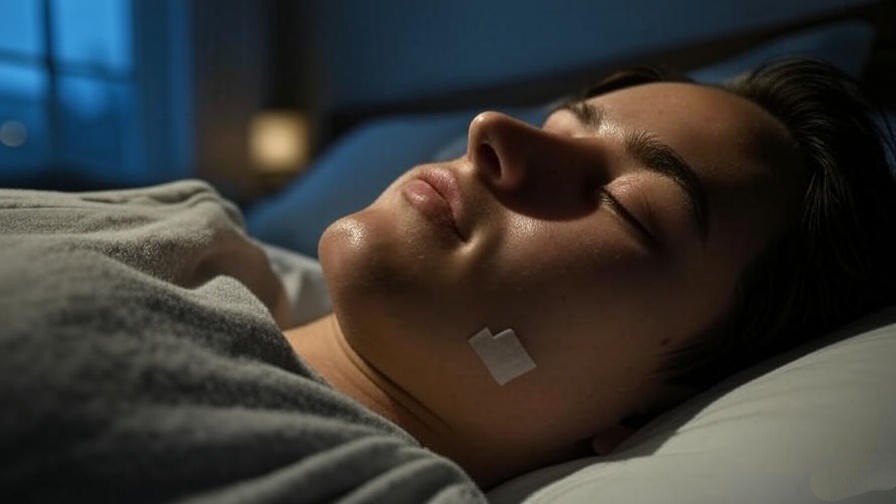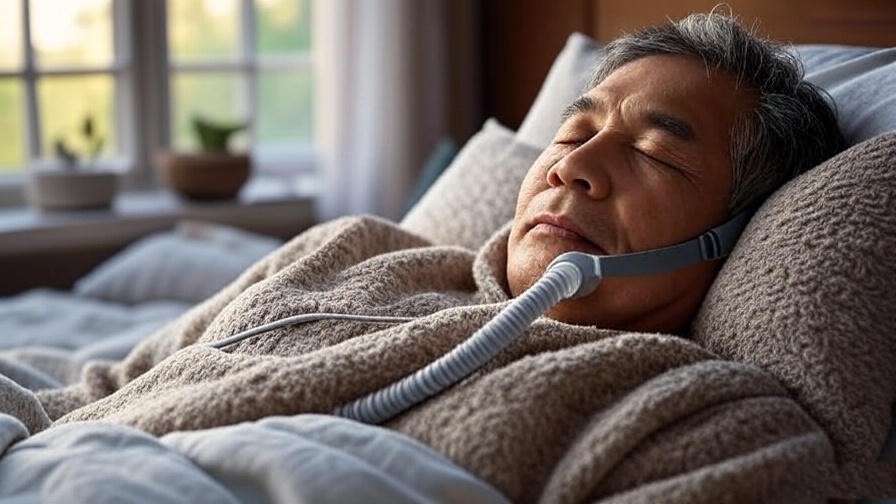Picture this: you’ve just had your wisdom teeth removed, and all you want is a good night’s sleep, but pain, swelling, and discomfort keep you tossing and turning. Sound familiar? Learning how to sleep after wisdom teeth removal is a common challenge, yet it’s critical for a smooth recovery. Quality rest accelerates healing, reduces complications, and restores your sense of well-being. As a sleep and wellness expert, I’ve combined insights from dental professionals and personal recovery experiences to bring you seven proven tips for restful sleep post-surgery. This comprehensive guide, backed by authoritative sources like the American Dental Association, will help you navigate sleep challenges and recover faster. Expect practical strategies, expert advice, and answers to your burning questions—all tailored to your holistic well-being.
Understanding Wisdom Teeth Removal and Its Impact on Sleep
What Happens During Wisdom Teeth Removal?
Wisdom teeth extraction is a common surgical procedure to remove the third molars, often performed under local or general anesthesia. According to the American Dental Association, the surgery typically takes 45 minutes to an hour, with recovery spanning 3–7 days for most patients. Post-surgery, you may experience swelling, jaw stiffness, mild bleeding, and discomfort, all of which can disrupt your ability to rest. Understanding these effects is the first step to mastering how to sleep after wisdom teeth removal. By preparing for these challenges, you can create a recovery plan that prioritizes restful sleep.
Why Sleep Is Critical for Recovery
Sleep is a cornerstone of healing. During deep sleep, your body ramps up tissue repair, boosts immune function, and manages pain more effectively. A 2018 study in Sleep Medicine Reviews found that quality sleep enhances wound healing and reduces inflammation, both vital after oral surgery. Without adequate rest, you risk prolonged recovery or complications like infection or dry socket. Prioritizing sleep not only speeds up physical healing but also supports mental clarity and emotional resilience, aligning with holistic wellness principles.
Common Sleep Challenges Post-Surgery
After wisdom teeth removal, several factors can sabotage your sleep:
- Pain and discomfort: Surgical sites may throb, especially at night.
- Swelling: Facial inflammation can make finding a comfortable position difficult.
- Medication side effects: Painkillers or antibiotics may cause restlessness or nausea.
- Jaw stiffness: Limited mobility can restrict comfortable sleeping postures.
- Anxiety: Worries about recovery or complications can keep you awake.
These challenges are normal, but with the right strategies, you can overcome them and achieve restorative sleep.
Preparing for Better Sleep Before Surgery
Consult Your Dentist or Surgeon
Preparation begins before surgery. During your pre-op consultation, discuss sleep concerns with your dentist or oral surgeon. Ask about pain management options, expected recovery timelines, and how medications might affect sleep. For example, some painkillers, like opioids, can cause insomnia or vivid dreams. A 2020 article from the Mayo Clinic recommends clarifying dosage schedules to balance pain relief with restful sleep. This proactive step ensures you’re equipped with expert guidance tailored to your needs.
Set Up a Sleep-Friendly Recovery Space

A calming bedroom environment is essential for post-surgery rest. Here’s how to prepare:
- Dim the lights: Use blackout curtains or a sleep mask to block light, promoting melatonin production.
- Reduce noise: Consider earplugs or a white noise machine to minimize disruptions.
- Optimize bedding: Invest in soft, supportive pillows and breathable sheets for comfort.
- Add a humidifier: Moist air can soothe dry mouth or throat irritation caused by surgery.
Creating this sanctuary aligns with holistic wellness by fostering relaxation and recovery.
Plan Your Post-Surgery Routine
Stock up on recovery essentials to minimize stress. Prepare soft foods like smoothies, yogurt, or mashed potatoes, and keep a water bottle nearby for hydration. Schedule rest periods to align with your medication doses, ensuring pain doesn’t interrupt sleep. Having a plan reduces anxiety and sets the stage for restful nights.
7 Proven Tips for Sleeping After Wisdom Teeth Removal
Tip 1: Elevate Your Head to Reduce Swelling
Swelling peaks 24–48 hours after surgery, making it hard to sleep comfortably. Elevating your head with 2–3 pillows reduces blood flow to the surgical site, minimizing inflammation and pressure. Dr. Sarah Thompson, a board-certified oral surgeon, explains, “Head elevation promotes better circulation, which can significantly reduce swelling and discomfort during sleep.” Arrange pillows in a wedge shape to support your neck and shoulders, ensuring you don’t slip down during the night. This simple adjustment is a game-changer for restful recovery.
Tip 2: Master the Right Sleeping Position
Your sleeping position directly impacts comfort and healing. Sleeping on your back with your head elevated is ideal, as it avoids pressure on the surgical sites. Slightly tilting to one side is acceptable if back-sleeping feels unnatural, but avoid stomach sleeping, which can irritate stitches or increase swelling. A 2021 guide from the Cleveland Clinic warns that improper positioning may lead to complications like dry socket. For visual guidance, imagine a 30-degree incline with pillows supporting your upper body, keeping your head above your heart.
Tip 3: Manage Pain with Medication and Timing
Pain management is key to restful sleep. Follow your dentist’s prescribed medication schedule, typically involving ibuprofen or acetaminophen, to keep discomfort at bay. Take doses 30–60 minutes before bedtime to ensure peak relief during sleep. However, be cautious of side effects—some medications, like opioids, can disrupt sleep cycles. Consult your doctor if you experience insomnia or restlessness. Balancing pain relief with restful sleep requires precision, but it’s achievable with professional guidance.
Tip 4: Use Ice Packs Strategically
Ice packs are a powerful tool for reducing swelling and numbing pain before bed. Apply a wrapped ice pack to each cheek for 15 minutes, followed by a 15-minute break, in the hours leading up to sleep. This technique, recommended by the American Association of Oral and Maxillofacial Surgeons, soothes the surgical area and prepares your body for rest. Avoid direct ice contact to prevent skin irritation, and stop icing if you feel discomfort.
Tip 5: Practice Gentle Relaxation Techniques

Anxiety or discomfort can make falling asleep challenging. Gentle relaxation techniques, like deep breathing or guided meditation, calm the mind and body. Try this 5-minute breathing exercise: Inhale for 4 seconds, hold for 4 seconds, and exhale for 6 seconds. Repeat until you feel relaxed. Apps like Calm or Headspace offer sleep-focused meditations tailored for recovery. A 2019 study in Frontiers in Psychology found that mindfulness practices reduce pain perception and improve sleep quality, making them perfect for post-surgery recovery.
Tip 6: Stay Hydrated and Nourished
Proper nutrition and hydration support healing and sleep. Sip water throughout the day to prevent dry mouth, a common post-surgery issue. Choose soft, nutrient-rich foods like bananas, applesauce, or bone broth, which are easy to consume and promote rest. Avoid spicy, crunchy, or hot foods that could irritate surgical sites. Chamomile tea, known for its calming properties, can also aid sleep. A balanced diet fuels recovery and aligns with holistic wellness goals.
Tip 7: Maintain a Consistent Sleep Schedule
A regular sleep schedule regulates your circadian rhythm, even during recovery. Aim to go to bed and wake up at the same times daily. Create a soothing bedtime routine—dim the lights, read a book, or practice light stretching (if approved by your dentist). Consistency signals to your body that it’s time to rest, improving sleep quality over time. This habit not only aids recovery but also supports long-term sleep health.

Additional Strategies to Enhance Sleep Quality
Incorporate Holistic Sleep Aids
Natural remedies can enhance sleep without relying on medications. Lavender aromatherapy, for instance, has been shown to reduce anxiety and promote relaxation, per a 2020 study in Evidence-Based Complementary and Alternative Medicine. Place a few drops of lavender essential oil on your pillow or use a diffuser. White noise machines can also mask disruptive sounds, creating a tranquil environment. These holistic approaches align with your wellness journey and support restful recovery.
Address Medication Side Effects
Some medications, like antibiotics or strong painkillers, may cause side effects such as insomnia, nausea, or vivid dreams. If you notice these issues, consult your dentist or doctor about adjusting your dosage or switching medications. For example, non-opioid pain relievers like ibuprofen are less likely to disrupt sleep. Being proactive about side effects ensures you maintain both comfort and rest.
Monitor for Complications That Disrupt Sleep
While rare, complications like excessive bleeding, infection, or dry socket can interfere with sleep. Watch for symptoms like severe pain, fever, or foul breath, and contact your dentist immediately if they occur. The Mayo Clinic advises seeking prompt care to prevent worsening issues. Staying vigilant allows you to address problems early, protecting your sleep and recovery.

Long-Term Sleep Benefits of Proper Recovery
How Good Sleep Now Prevents Future Issues
Quality sleep during the initial recovery phase after wisdom teeth removal does more than provide immediate relief—it sets the foundation for a smoother healing process and reduces the risk of complications. Poor sleep can exacerbate inflammation, delay tissue repair, and increase the likelihood of issues like dry socket, a painful condition where the blood clot at the surgical site dislodges. According to a 2022 article from the American Association of Oral and Maxillofacial Surgeons, adequate rest strengthens the immune system, helping your body fight potential infections. By prioritizing sleep now, you’re investing in faster recovery and long-term oral health, aligning with holistic wellness principles that emphasize the body’s natural healing abilities.
Moreover, restful sleep supports emotional well-being. The discomfort and stress of surgery can take a mental toll, but consistent, quality rest helps regulate mood and reduces anxiety. This connection between sleep and mental clarity is a cornerstone of holistic health, making it essential to master how to sleep after wisdom teeth removal.
Transitioning Back to Normal Sleep Patterns
As you progress through recovery—typically within 7–14 days—you can gradually return to your usual sleep habits. Start by slowly reducing the number of pillows used for head elevation, ensuring swelling has subsided and you’re comfortable. If you’re accustomed to side or stomach sleeping, reintroduce these positions cautiously, checking for any discomfort or pressure on the surgical sites. A 2021 guide from the Cleveland Clinic suggests waiting at least one week before resuming non-elevated positions to avoid disrupting healing.
To maintain sleep quality long-term, incorporate mindfulness practices like journaling or progressive muscle relaxation into your bedtime routine. These habits, rooted in holistic wellness, reinforce healthy sleep patterns and help you transition smoothly. For example, a 5-minute gratitude journaling session before bed can shift your focus from discomfort to positivity, easing you into restful sleep.
FAQs About Sleeping After Wisdom Teeth Removal
How Long Will It Take to Sleep Normally After Wisdom Teeth Removal?
Most patients can resume normal sleep patterns within 3–7 days, though full recovery may take up to two weeks, depending on factors like the complexity of the surgery, individual healing rates, and adherence to post-operative care. Swelling and pain typically peak within 48 hours and subside significantly by day five, making sleep easier. To speed up this process, follow the seven tips outlined above, particularly elevating your head and managing pain effectively. If sleep issues persist beyond two weeks, consult your dentist to rule out complications.
Can I Sleep on My Side After Surgery?
Side sleeping is generally safe after the first 48 hours, provided you keep your head elevated and avoid direct pressure on the surgical sites. Use pillows to prop yourself at a 30-degree angle to minimize swelling. Sleeping flat on your side too soon can irritate stitches or increase inflammation, so wait until your dentist confirms healing progress, typically at a follow-up appointment. Back sleeping remains the safest option during early recovery.
What If Pain Keeps Me Awake Despite Medication?
If pain disrupts sleep even with prescribed medications, try combining non-pharmacological strategies like ice packs (Tip 4) and relaxation techniques (Tip 5). For example, apply an ice pack 30 minutes before bed and follow with a guided meditation to ease discomfort. If the pain feels severe or worsens, contact your dentist immediately, as it could indicate complications like infection or dry socket. Always follow your prescribed medication schedule, and avoid taking extra doses without medical advice.
Are Sleep Aids Safe During Recovery?
Over-the-counter sleep aids, like melatonin or antihistamine-based medications, may seem tempting, but they’re not always safe post-surgery. Some sleep aids can interact with pain medications or antibiotics, causing side effects like drowsiness or nausea. A 2020 study in Sleep Medicine advises consulting a healthcare provider before using sleep aids during surgical recovery. Instead, opt for natural remedies like chamomile tea or lavender aromatherapy, which are gentler and align with holistic wellness.
How Can I Reduce Swelling at Night?
To reduce swelling at night, elevate your head with 2–3 pillows (Tip 1) and apply ice packs strategically before bed (Tip 4). Additionally, avoid salty or sugary foods, which can exacerbate inflammation. Drinking plenty of water throughout the day helps flush out excess fluids, reducing facial puffiness. If swelling persists beyond 48 hours or worsens, consult your dentist to ensure proper healing.
Conclusion
Mastering how to sleep after wisdom teeth removal is a vital step toward a swift and comfortable recovery. By implementing these seven proven tips—elevating your head, choosing the right sleeping position, managing pain, using ice packs, practicing relaxation techniques, staying hydrated, and maintaining a consistent sleep schedule—you can overcome post-surgery sleep challenges and heal faster. These strategies, grounded in expert advice from dental professionals and sleep researchers, empower you to take control of your recovery while supporting your holistic well-being.
Start applying these tips tonight, and share your experiences in the comments below. For more insights on sleep, meditation, and wellness, explore our related articles, such as “Mindful Meditation for Pain Relief” or “Best Sleep Hygiene Practices for Recovery.” Your journey to restful sleep and a healthier you begins now.













